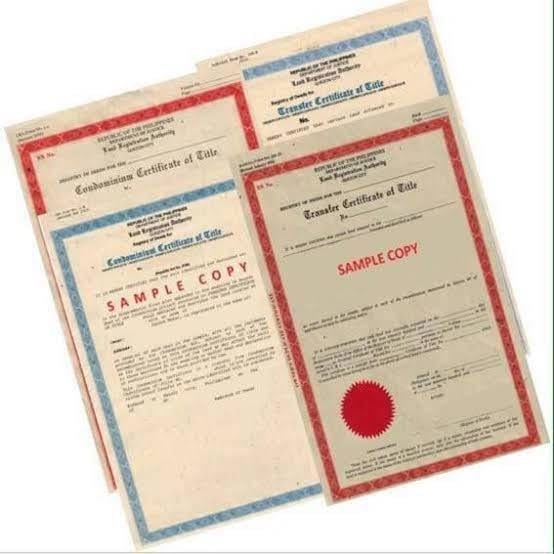Essential Steps to Verify Ownership and Title in Philippine Real Estate Due Diligence

Essential Steps to Verify Ownership and Title in Philippine Real Estate Due Diligence
Buying real estate in the Philippines can be a rewarding investment, but due diligence is critical to avoid unexpected issues. One of the most essential steps is verifying ownership and title to ensure that the property is legally clear for sale. This article will discuss key elements in confirming ownership, understanding the importance of a Special Power of Attorney (SPA), and conducting title tracing, among other critical due diligence steps.
Why Verifying Ownership and Title is Crucial
When buying property, especially in the Philippines, verifying ownership and title ensures that you’re dealing with the rightful owner and that the property is free from legal issues. A thorough review of the title protects your investment from future claims, encumbrances, or disputes. Below are detailed steps for verifying ownership and title as part of a robust due diligence process.
1. Obtain a Certified True Copy of the Title
The first step is to obtain a certified true copy of the property’s title from the Registry of Deeds where the property is located. This copy will provide official documentation of the current titleholder, property details, and any encumbrances or liens against the property. Here’s what to check:
Title Details: Ensure that the title number, owner’s name, and property description match the seller’s information.
Encumbrances Section: Check if there are annotations, liens, or mortgages on the title. Encumbrances could affect your ability to secure a clear title.
2. Conduct a Title Tracing or Back-Titling
Title tracing (or back-titling) involves checking the property’s ownership history to ensure that there are no outstanding claims or issues with previous owners. In the Philippines, it’s common for properties to pass through multiple generations, which may create gaps in ownership documentation. Here’s how title tracing works:
Review Previous Ownership: Look back over past transactions and owners to ensure there are no unresolved disputes or conflicting claims.
Verify Legal Processes: Make sure previous transfers followed legal protocols, especially if the property passed through inheritance or was subdivided. Check for estate taxes and proper documentation.
Consult the Registry of Deeds: The Registry will have a record of any disputes, judicial decrees, or contested transfers, which may impact the current title.
3. Understand the Importance of a Special Power of Attorney (SPA)
In some cases, the registered owner may not be able to conduct the transaction personally due to being abroad or other constraints. This is where a Special Power of Attorney (SPA) comes into play. An SPA legally designates another person, called an Attorney-in-Fact, to act on the owner’s behalf in specific transactions.
Validate the SPA in an Online Meeting: Before proceeding, it’s crucial to hold an online meeting with both the Attorney-in-Fact and the seller to confirm the authenticity of the SPA. Confirm that the SPA:
Specifies the property and allows the Attorney-in-Fact to sell it.
Is notarized and/or authenticated if executed abroad.
Verify Attorney-in-Fact’s Identity: Ensure the Attorney-in-Fact’s identity aligns with the SPA. Having a lawyer review the SPA is highly recommended to avoid fraud.
Check for Expiry and Validity: An SPA may have a limited duration or specific conditions; make sure it’s currently valid.
4. Verify Tax Payments and Clearances
Outstanding taxes can create legal complications during and after the sale. Make sure to verify if all property taxes have been paid up to date:
Check Real Property Tax (RPT) Receipts: Ask for the latest RPT receipts, which show that the owner has settled annual property taxes. Delinquent taxes could become the buyer’s responsibility.
Secure Tax Declaration Documents: The tax declaration certifies the property’s assessed value, which can affect fees and transfer taxes during the sale.
5. Validate Seller's Identity and Check for Additional Owners or Heirs
When purchasing from an individual seller, especially if the property was inherited, it’s essential to confirm the seller’s identity and any potential claims from co-owners or heirs.
Ask for Government-Issued ID: Confirm the seller's identity by reviewing government IDs that match the name on the title.
Investigate Potential Heirs: If the property was inherited, there may be co-owners who have a legal interest in the property. Ensure all necessary parties are involved in the sale.
Joint Ownership Documentation: If the property is under co-ownership, confirm that all co-owners agree to the sale and will sign the necessary documents.
6. Use a Licensed Real Estate Lawyer or Broker
In the Philippines, complex property transactions can often benefit from professional guidance. A licensed real estate lawyer or broker can assist with document verification, secure compliance with legal requirements, and oversee that all parties fulfill their obligations.
Legal Expertise: A lawyer can ensure contracts are legally sound, protect your interests, and handle unforeseen legal issues.
Broker’s Local Knowledge: Brokers may be familiar with the property, neighborhood, and any issues that could impact the sale, such as zoning restrictions or local ordinances.
7. Conduct Due Diligence on Additional Agreements and Easements
Some properties may be subject to easements (e.g., right-of-way) or other use agreements that impact their utility or boundaries.
Identify Easements: An easement can affect the property’s use and value. Check the title for any annotations regarding easements.
Inspect Boundary Markers: Physical inspection of boundary markers can prevent future disputes with neighboring property owners.
Conclusion
Verifying ownership and title in the Philippines requires a combination of document checks, background investigations, and legal validation. Ensuring the property’s title is free of claims, verifying the SPA if the owner is unavailable, and tracing back ownership history are essential due diligence steps to protect your investment. Consulting with real estate professionals and conducting thorough checks will give you peace of mind and a clear path to successful property ownership.
For more guidance or assistance with your property transaction, you can reach out to Samuel O. Lao and Associates at +639173236123.










